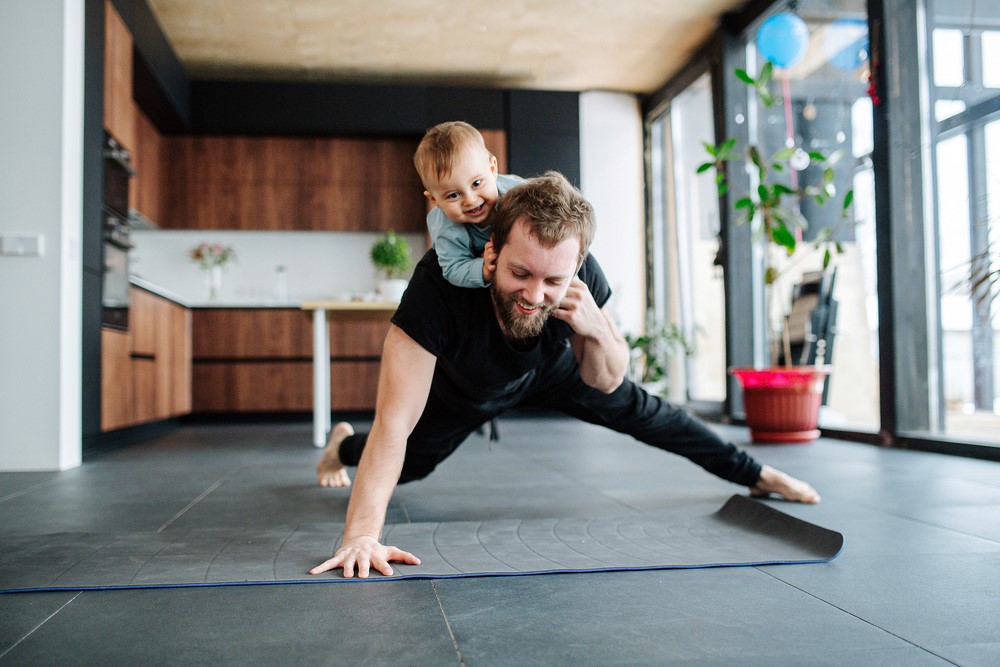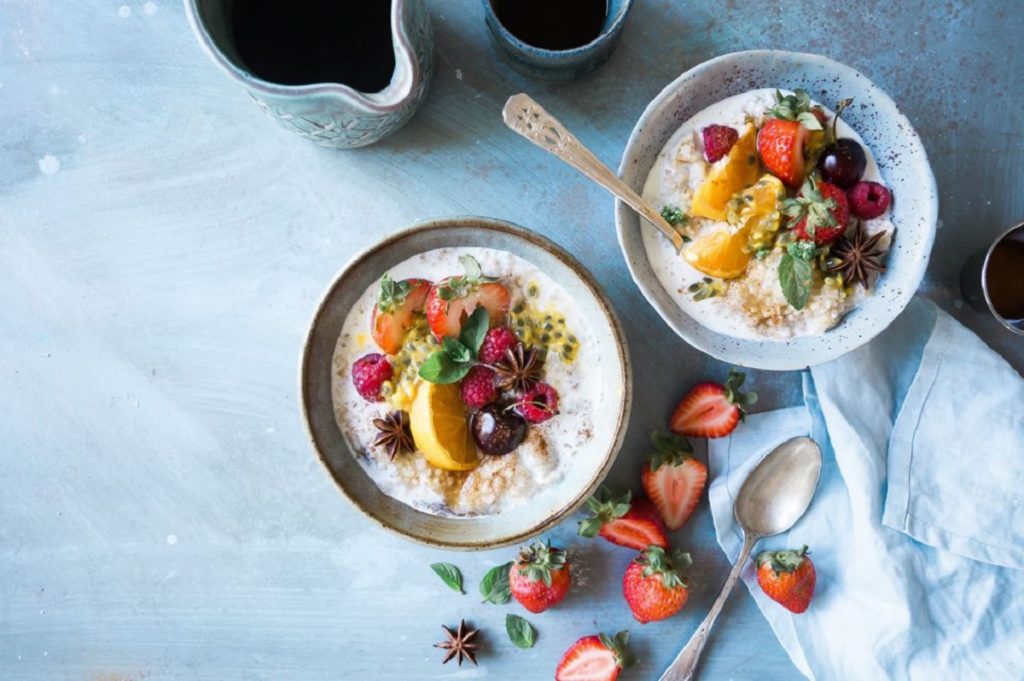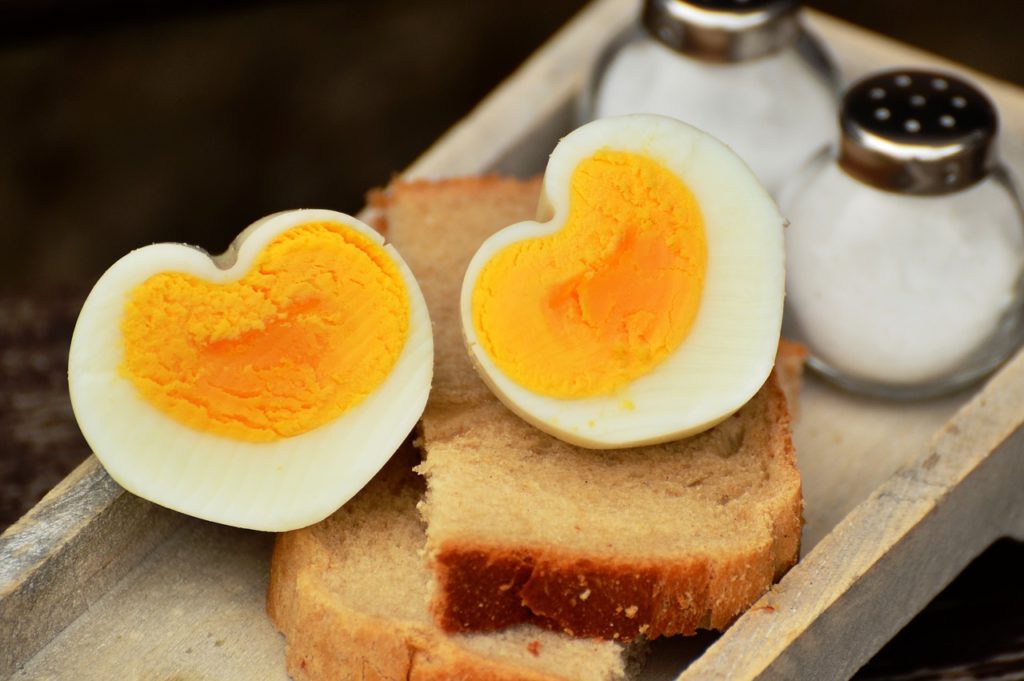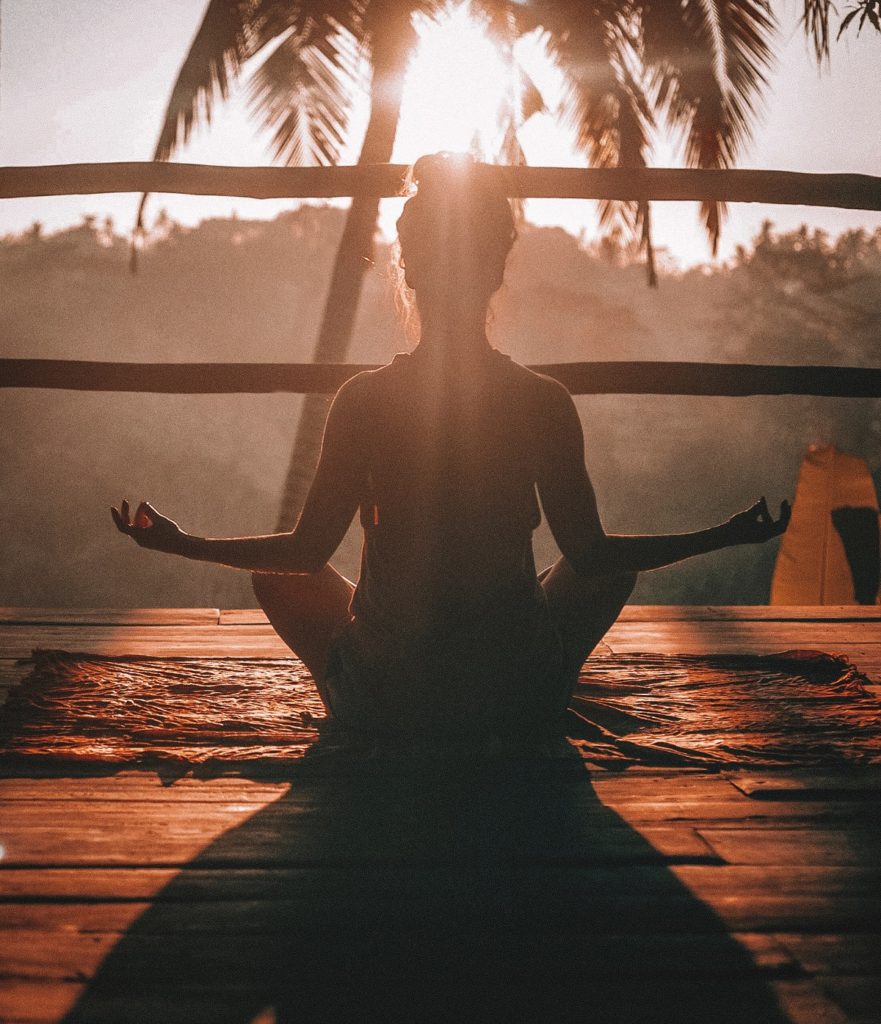Table of Contents
The coronavirus pandemic has caught the world off-guard, with many countries scrambling to counter the threat of the virus. With news about COVID-19 here and there, it’s only natural to feel anxious or distressed. As people’s fears for their own health and that of their loved ones grow, worries over when life will return to “normal” also increase. This, in turn, heightens stress and anxiety, which have adverse effects on both physical and mental health.
In times of crises like this, it’s all the more important to keep a healthy body and mind not only to boost the immune system and keep the virus away but also to maintain one’s well-being. While coping with stressors may be challenging during home quarantine, it’s definitely doable. Start simple—that means creating a daily routine to get the drive to keep going.

No Gym? No Problem!
It may be tempting to just curl up on the couch, but the indefinite closure of gyms doesn’t mean having to keep your fitness goals on hold. You can still stick to an active lifestyle and do workouts while on quarantine. Join virtual fitness classes or try these exercises at home:
Bodyweight Circuit
Having no gym equipment isn’t a problem. Here, all you need is your body weight and a little bit of space (and time). With each exercise utilizing multiple muscle groups, expect to get your heart rate pumping in as short as 10 minutes.
Do the following exercises for 30 to 60 seconds each: squats, lunges, push-ups, chair dips, burpees, and planks. Then, rest for a minute. Repeat the whole circuit routine three times.
Lifting
Again, there’s no need for any fancy equipment. Many household items can double as equipment for weight-lifting exercises. According to health experts, strength training has many benefits, ranging from weight control and balance improvement to bone loss prevention. You can use a water jug as a kettlebell, a frying pan as a dumbbell, and a backpack filled with books as makeshift weights.
30-Day Challenge
Now, you might want to give yourself a bit of a challenge. Choose one exercise that you’ll commit to doing every day for a month, depending on the body part you want to target. Whether you’re a beginner or a regular in working out, you’ll surely see and feel significant results after four weeks.
The Key is in the Food You Eat
Understandably, many people have been turning to comfort food to cope with the overwhelming stress and uncertainty brought about by the pandemic. In the U.S., for instance, popcorn and potato chip sales in March have risen to 48% and 30%, respectively, compared to the same period in 2019.
Health experts, however, warn against emotional or stress eating. A well-balanced diet is key to good physical and mental health during the home quarantine. Follow these tips:
Plan Your Meals

There are many food plans for wellness that you can try to avoid overeating and even save money. With weekly meal plans, expect food shopping to be easier and to see a decline in your consumption of unhealthy snacks. Pick recipes for the whole week, list down and shop for the ingredients, and spend your Sunday prepping the meals.
Don’t Go for the Bag
Food such as potato chips, cookies, and candies are not only high in fat and sugar but also provide little nutritional benefit. While you should still allow yourself treats, make sure that you limit what you consume. What you can do is control the portions instead of eating straight out of the packaging. Also, stock up on fruits and vegetables—whether fresh, frozen, canned, or dried—as substitute snacks.
Get Your Vitamin D

Spending some time under the sun is the most popular way of getting your daily dose of vitamin D, which is essential for maintaining healthy bones. The problem is, you’re in quarantine, so it may be extra hard to get sun exposure.
The good news is there is food that can provide you with the recommended daily intake of 20 mcg of vitamin D: egg yolks, milk, cereals, mushrooms, sardines, and canned tuna.
Stay Connected
Face-to-face contact may now be limited, but psychologists stress the importance of maintaining a strong support system. Make the most of technology and social media by keeping in touch with friends, family, and colleagues.
With no brunch or coffee dates, for now, you just need to be more creative with your phone calls and video chats. For example, show off your cooking skills while on a video call with friends or include your fur baby on your next video chat with your parents. You may be in quarantine, but don’t isolate yourself from your loved ones.
Practice Meditation

Meditation is known to reduce stress and increase calmness, resulting in less anxiety. This is an excellent way to practice self-care when you feel like everything is spiraling out of your control. If you’re new to this, you can learn to meditate using mobile apps, such as Headspace and Calm, and find a meditation exercise that works for you.
The goal is to acknowledge your negative emotions (boredom and loneliness due to hiatus from work, fear for family’s safety amid the pandemic, and frustration over the loss of personal freedom with quarantine measures, among others), but not let them rule your life. As you practice, you’ll see how meditation brings clarity to mind.
Keep Moving
Taking proper care of the body and avoiding exposure are essential not only in fighting the spread of COVID-19 but also in maintaining good mental health during this time of crisis. Whether you’re taking a break or working from home, keep a daily routine to preserve a sense of normality and purpose in your life.
Exercise, eat and sleep well, meditate, keep your mind active, and stay in touch with loved ones. Take it one day at a time and remember, you’re not alone in this fight.















